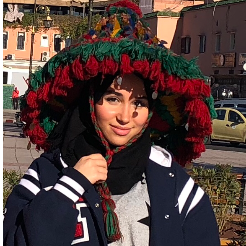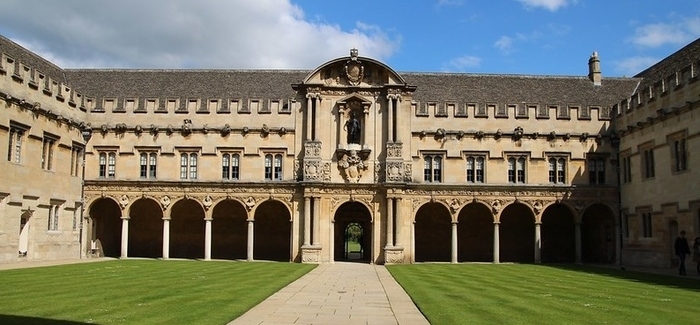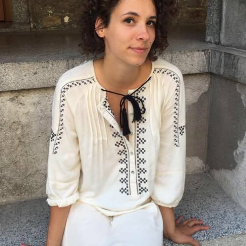There are lots of rumors and horror stories floating around about Oxbridge interviews. While many of these are exaggerated, the interview process is very thorough in order to narrow down the candidates.
Read on as we debunk the myths and legends associated with the infamous Oxbridge interview and provide answers to all the questions you probably have…
What is Oxbridge?
If you have received an interview to either the University of Oxford or the University of Cambridge, you’ll hopefully know the answer to this one. For those who don’t know, Oxbridge itself is simply a blend of the words ‘Oxford’ and ‘Cambridge’. The two are often referred to as ‘Oxbridge’ due to the level of academic excellence associated with them, setting them apart from other universities in the UK. The two universities rank well in the QS World University Rankings® 2020, with the University of Oxford placing fourth in the world (first in the UK) and the University of Cambridge in seventh place in the world (second in the UK).
When will I find out if I’ve been invited to an interview?
[[{"fid":"1285403","view_mode":"default","attributes":{"class":"media-element file-default","data-delta":"1"},"fields":{"format":"default","field_file_image_alt_text[und][0][value]":false,"field_file_image_title_text[und][0][value]":false},"type":"media","field_deltas":{"1":{"format":"default","field_file_image_alt_text[und][0][value]":false,"field_file_image_title_text[und][0][value]":false}}}]]
‘You will receive a letter or an email indicating whether or not you have been invited for interview in mid to end of November’ says the University of Oxford website.
‘Courses holding interviews in early December will issue invitations in mid-November and those holding interviews later in December will issue invitations towards the end of November.’
The University of Cambridge website says, ‘The majority of interviews in Cambridge take place in the first three weeks of December (some may be a little earlier).’
How many people get to the interview?
According to the University of Oxford’s website, the university receives an average of 20,000 applications for the 3,250 places on offer each year and carries out around 10,000 interviews. You don’t have to be a math whizz to realize that this means there is a high rejection rate for Oxford candidates. Don’t let this stop you applying, however, as you might be an ideal Oxford candidate who has the potential to be offered one of these highly sought-after places.
In Cambridge, according to their website, ‘Everyone with a realistic chance of being offered a place is invited to attend an interview’, which, they say, amounts to around 75 percent of applicants.
What kind of person are Oxford and Cambridge looking for?
[[{"fid":"1285405","view_mode":"default","attributes":{"width":"700","class":"media-element file-default","data-delta":"2"},"fields":{"format":"default","field_file_image_alt_text[und][0][value]":false,"field_file_image_title_text[und][0][value]":false},"type":"media","field_deltas":{"2":{"format":"default","field_file_image_alt_text[und][0][value]":false,"field_file_image_title_text[und][0][value]":false}}}]]
The universities claim that all they are looking for in potential students is a strong mind and a passion to learn. Oxford University writes: ‘The only things that Oxford students have in common are academic ability and intellectual curiosity. Our students come from all over the world and bring with them an amazing range of backgrounds and interests.’
Cambridge university writes that they’re looking for people with good ‘problem solving abilities, an assimilation of new ideas and information and intellectual flexibility and analytical reasoning’
Who will be interviewing me?
In the University of Oxford, academic tutors will most likely be interviewing you. ‘They teach and research at the university and have an in-depth knowledge about the subject.’
Similarly, the University of Cambridge says interviewers will be ‘specialists in the subject you’ve applied for, one of whom is usually the College Director of Studies who would oversee your academic studies and progress at Cambridge’
“I had a preliminary interview on Skype where I interviewed with my supervisor on the project/funding/lab” says one PhD student, Laura Brown. “On my actual interview day I was interviewed by my supervisor whilst also having an opportunity to see the labs and meet current students.”
Will I have to sit a written assessment?
In Cambridge you will be required to complete a written assessment for all courses except for mathematics and music.
In Oxford, depending on what is relevant for the course you are applying for, you may be given a text, a poem, or an object and asked to answer questions about it.
How should I prepare? Brush up on your knowledge of world affairs and any recent news related to your subject. You should also have a solid knowledge of your subject and do some extra reading around it.
If you haven’t studied the subject before, Oxford advises thinking about the reasons that you want to study it and doing some general reading around the subject. However, you won’t be expected to have in depth knowledge of the field, and interviewers will be assessing your skills and aptitude rather than specific knowledge.
One Oxbridge interviewee, John Barton, tells TopUniversities, “Before my interview I made sure I did lots of preparation such as interview practice, reading books about the subject and preparing certain translations (for the written assessment).”
Will I get asked any wacky questions?
[[{"fid":"1285407","view_mode":"default","attributes":{"width":"700","class":"media-element file-default","data-delta":"3"},"fields":{"format":"default","field_file_image_alt_text[und][0][value]":false,"field_file_image_title_text[und][0][value]":false},"type":"media","field_deltas":{"3":{"format":"default","field_file_image_alt_text[und][0][value]":false,"field_file_image_title_text[und][0][value]":false}}}]]
Oxbridge interviewees have reported being asked a variety of crazy questions, including ‘Is it moral to hook up a psychopath (whose only pleasure is killing) to a reality-simulating machine so that he can believe he is in the real world and kill as much as he likes?’ for philosophy, ‘Why might it be useful for an English student to read the Twilight series?’ for English literature and ‘Are you cool?’ for economics.
In your interview you may be asked questions about your personal statement, your essay (if you submitted one) and the subject you’re wishing to study. Occasionally interviewers might ask a purposefully difficult question to see how you react to solving problems. When these questions are asked, interviewers expect interviewees to calmly go through their thought process.
When asked about the interview questions, Brown tells us “It was all in the realm of what could be asked about the prep material, but there were questions I wasn’t necessarily prepared for. She adds, “I was honest and made intellectual guesses where appropriate. They just wanted to assess my knowledge and understanding of the field to see if I would be a feasible candidate.”
What should I wear to the interview?
For the interview you should wear something smart, but that you feel comfortable in.
“I wore a suit, but essentially just wear smart clothes”, advises Barton.
Brown tells us, “I wore a shirt, a jumper, a blazer, a long trench coat, some navy trousers and some Oxford shoes (the irony!)”
What happens after the interview?
[[{"fid":"1285409","view_mode":"default","attributes":{"width":"700","class":"media-element file-default","data-delta":"4"},"fields":{"format":"default","field_file_image_alt_text[und][0][value]":false,"field_file_image_title_text[und][0][value]":false},"type":"media","field_deltas":{"4":{"format":"default","field_file_image_alt_text[und][0][value]":false,"field_file_image_title_text[und][0][value]":false}}}]]
In early January the ‘Winter pool takes place and decisions are posted to applicants. A small number of applicants may be asked to attend a further interview’ says the Cambridge website.
‘Most applicants who were interviewed in December should have heard whether they have been accepted conditionally or unconditionally or have been unsuccessful before the end of January.’
“I heard back really quickly” says Brown, “it was only about two days after the interview, but I think I was one of the last people to be interviewed.”
**
Have you interviewed for Oxford or Cambridge? Let us know about your experiences in the comments below.












